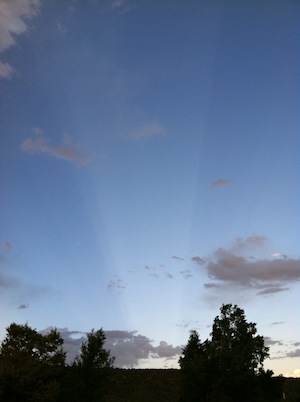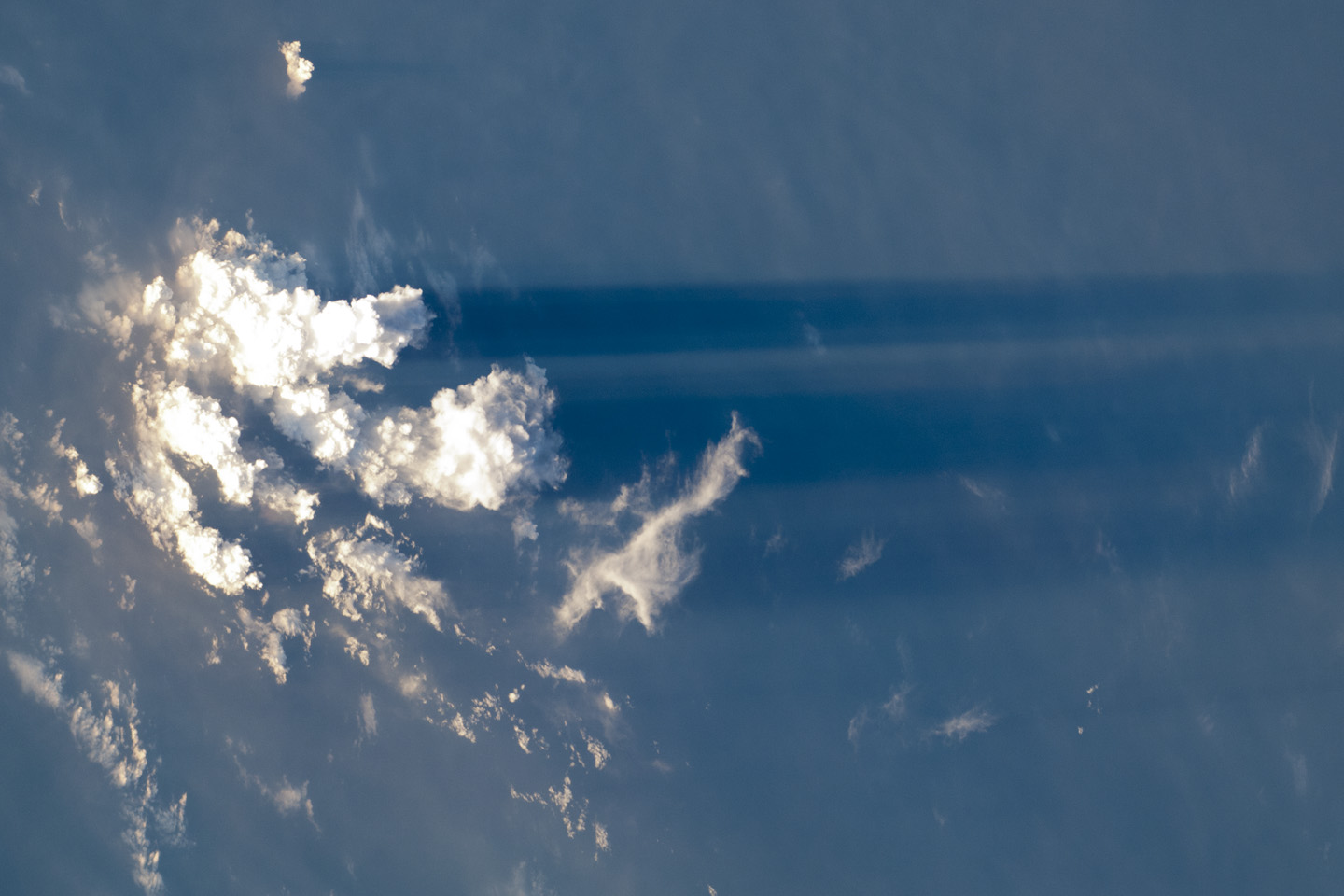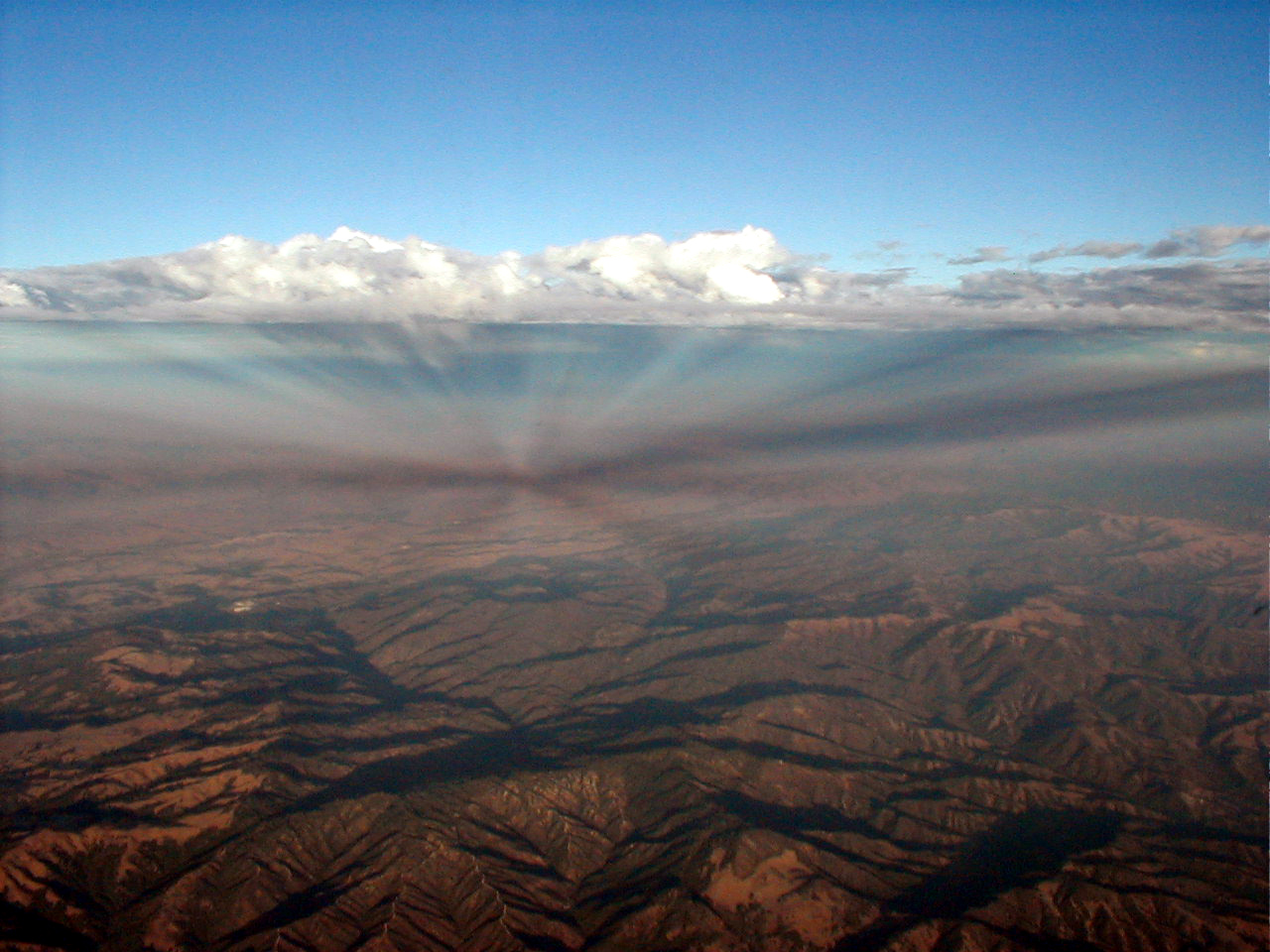 On Sunday evening, I was standing in our orchard watching the sunset when I turned around and saw a strange beam of light that appeared to rise from the east, directly opposite the setting sun. Crepuscular rays or “God’s Fingers” are pretty common around here, but usually these majestic light rays emanate from the sun. How could a sunlight radiate from a point opposite the sun?
On Sunday evening, I was standing in our orchard watching the sunset when I turned around and saw a strange beam of light that appeared to rise from the east, directly opposite the setting sun. Crepuscular rays or “God’s Fingers” are pretty common around here, but usually these majestic light rays emanate from the sun. How could a sunlight radiate from a point opposite the sun?
I basked in this beguiling mystery for approximately ten seconds before my husband informed me that it was no mystery at all. “It’s just an optical illusion caused by those clouds,” he said, pointing to the storm clouds above that had been spitting out dry lightning for the past 20 minutes.
Upon further investigation, I realized that he was right. The rays we were seeing were actually parallel lines, created by sunlight pouring through gaps in the clouds. But when these straight, parallel lines get projected onto our spherical sky, they take on a circular appearance and seem to converge on the horizon in the same way that railroad tracks appear to intersect in the far-off distance. This photograph taken by the Expedition 29 crew at the International Space Station in 2011 offers a more revealing perspective.
I shared my photo with our neighbor Art, an avid skywatcher and vice-president of our local astronomy club. Art informed me that what I’d seen were anticrepuscular rays. Most people have seen crepuscular rays, but anticrepusular rays are a rarer sight, probably because most of us have our backs to them as we oooh and aaah over the sunset that’s usually taking place in the opposite direction.
So from now on, I’m going to make a habit of turning around to observe the sky opposite the sunset, least I miss another wondrous light show. Or, as the Cloud Appreciation Society calls them, the digits of the devil.
*
Top image by Christie Aschwanden.
Photo from the International Space Station courtesy of NASA.
Image of Anticrepuscular rays over Arizona by Craig Gould.


I didn’t know anything about anticrepuscular rays or even about crepuscular rays, though I’ve been looking at them with love on Wikimedia high-res pictures for years now.
http://commons.wikimedia.org/wiki/File:Crepuscular_rays_with_reflection_in_GGP.jpg
There are different kinds, apparently.
http://commons.wikimedia.org/wiki/File:Back-scattering_crepuscular_rays.jpg
http://commons.wikimedia.org/wiki/File:Lunar_Crepuscular_Rays_2.jpg
Anyway, thank you very much for some morning delight.
That is extremely cool, Christie. THanks for sharing. Glad Dave and your neighbor knew something about it!
How beautiful – thank you Christie for this “enlightening” bit of science!